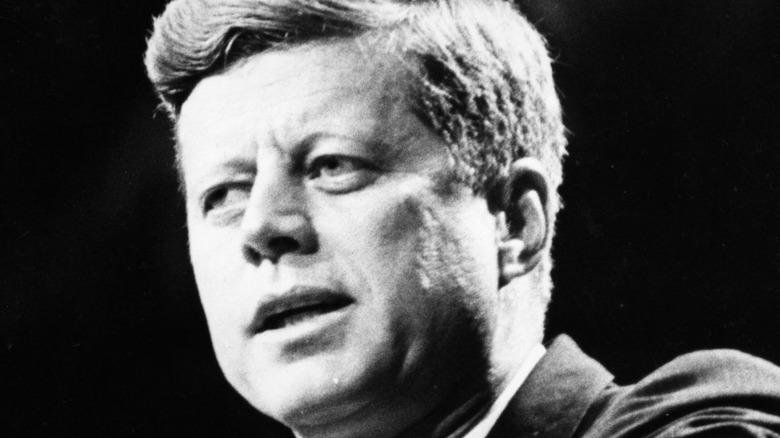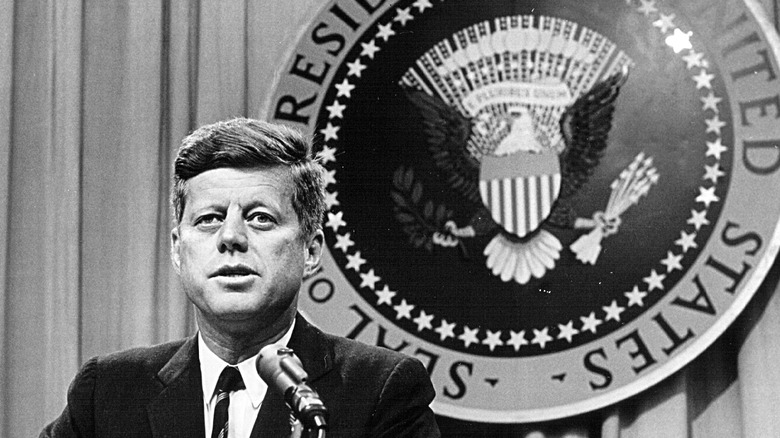Here's How JFK Helped Put An End To The Cuban Missile Crisis
As History reports, the infamous Cuban Missile Crisis took place in October of 1962, revolving around the presence of newly installed Soviet Union missile sites in Cuba. At just 90 miles or so from the coast of the United States, President John F. Kennedy considered their presence a danger to his nation.
So began a who-will-blink-first standoff that lasted for 13 very dangerous days. Kennedy, for his part, both escalated the drama and contributed to ending the very real threat of full-blown warfare breaking out.
Kennedy's response, History explains, was to use the U.S. Navy to blockade Cuba. This opening act certainly provoked a response from the Soviet Union, whose ships traveling to Cuba approached the blockade just two days later (on October 24). They did not attempt to pass through, however, and it was potentially only through restraint on both sides that the world wasn't plunged into nuclear conflict.
The United States certainly had the arsenal for such an undertaking: according to BBC History, the US had over 25,000 nuclear weapons at its disposal. JFK seemed desperate not to use them. He had known that Soviet Union leader Nikita Khrushchev had been bolstering his arsenal in Cuba prior to the addition of these new missiles, but had negotiated with Khrushchev: install weapons for the defense of Cuba, but weapons to be used to go on the offense would be a different matter.
JFK and Khrushchev make peace together
As JFK had told the American people the month before, on September 4 (per Outrider), it didn't seem that the Soviet arsenal in Cuba had "significant offensive capability ... were it to be otherwise, the gravest issues would arise." To avoid such issues now that the situation appeared to have changed, the president and his advisors explored multiple possible courses of action (per History), including invading Cuba outright and preemptive bomb raids on the missile sites. Ultimately, they decided that a blockade would be far less destructive and provocative.
Khrushchev, in turn, sought a more diplomatic resolution. Both superpowers had been communicating throughout, and it was the Soviet leader who suggested a deal: if the United States did not launch an attack on Cuba, he would take down the contentious missile installations. There was a second part to the deal, History adds: he would destroy the sites entirely if America dispensed with their own installations in Turkey.
Officially, per History, the first part of the deal was swiftly brokered and peace was restored. Off the record, it seems, Kennedy also agreed to relinquish the missiles in Turkey. Thanks to the efforts of JFK, as well as Khrushchev and both leaders' staff, the world was spared a catastrophe.

